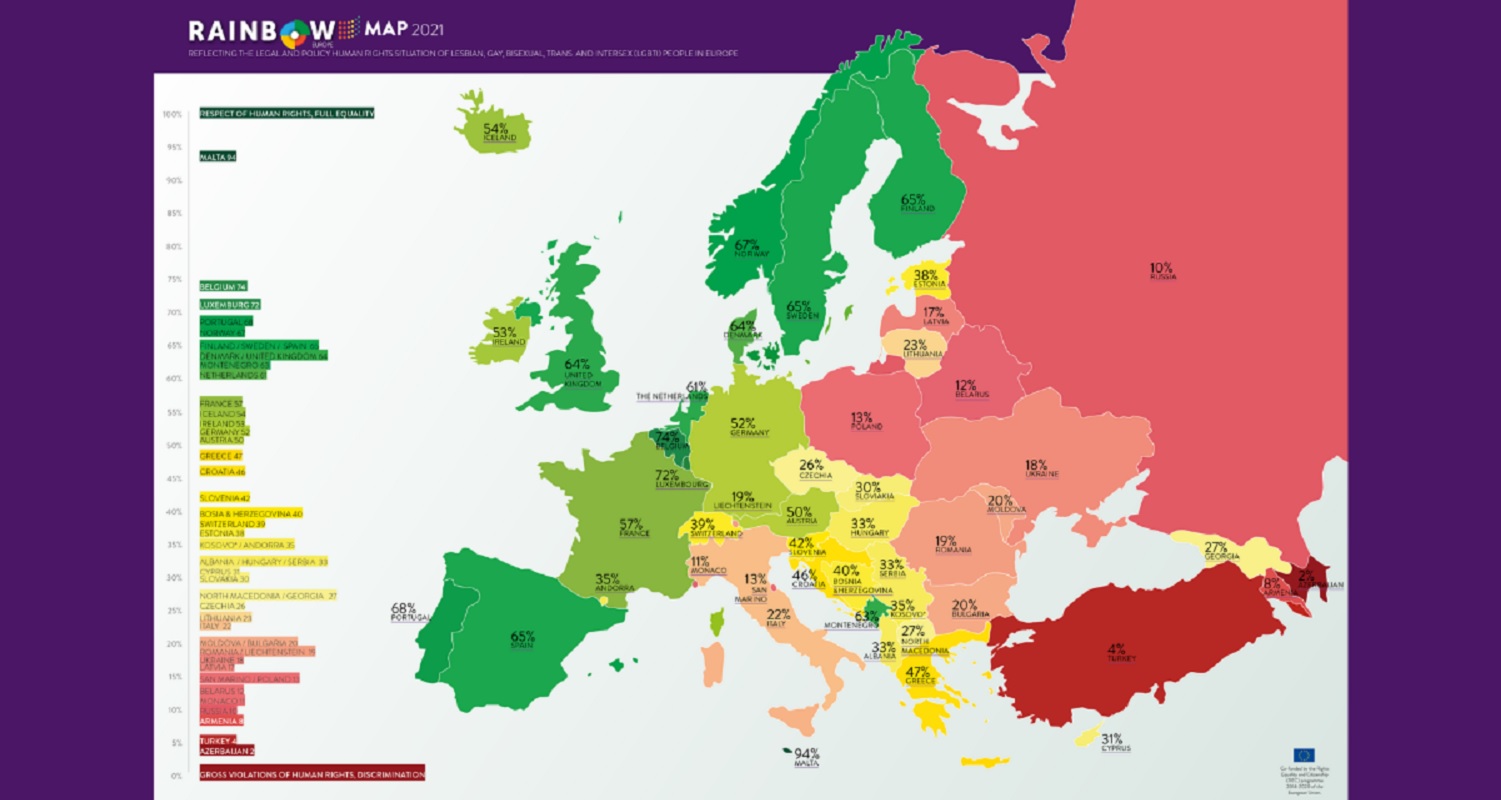UK drops down IGLA-Europe’s ranking for LGBTQ rights, Malta stands firm at number one
"Progress is stopped because there’s increased political polarisation on LGBTI issues," says the ILGA's Advocacy Director.

Words: Jamie Tabberer; picture: IGLA
The UK has dropped down The International Lesbian, Gay, Bisexual, Trans and Intersex Association (IGLA-Europe) ranking on LGBTQ rights, falling from ninth to tenth place.
Malta remains in the top spot for the sixth year in a row, scoring 93.78%.
The report, published yesterday, places Belgium second with 74.24%, Luxumbourg third with 71.95%, Portugal fourth with 68.35% and Norway fifth with 67.49%.
Azerbaijan is in last place with a dismal 2.33%.
Released every year since 2009 on International Day Against Homophobia, Transphobia, Biphobia, and Intersexphobia (IDAHOBIT), the list ranks the legal and policy situation of LGBTQ people in 49 European countries.
View this post on Instagram
It marks countries on a scale between 0% (gross violations of human rights, discrimination) and 100% (respect of human rights, full equality) over the last 12 months, taking into account legislative changes plus two new indicators for 2021: non-binary recognition and legal gender recognition procedures exist for minors.
Executive Director of ILGA-Europe Evelyne Paradis told Attitude: “It’s the first time in the 12 years history of the Rainbow Map that we report that 70% of the countries have made no advancements at all on LGBTI rights in the last 12 months. If national governments in Europe choose to do the right thing, the map will look positively different in 2022.”
“Increased political polarisation on LGBTI issues”
Katrin Hugendubel, ILGA-Europe’s Advocacy Director added in a statement: “So many legislative processes have been stalled in Europe over the past 12 months, in countries including Cyprus, Czechia, Denmark, Finland, France, Italy, Kosovo, Lithuania, Moldova, Montenegro, the Netherlands, Sweden, and the United Kingdom. We also see the implementation of existing procedures, for example on legal gender recognition, worsening, including in Georgia, Spain, Serbia and Northern Ireland”.
“It would be easy to blame it all on political attention being immersed in the public health response to COVID-19 and the ensuing economic fall-out, but the reality is a lot more complex. In too many countries, progress is stopped because there’s increased political polarisation on LGBTI issues, because some elected officials no longer see gains to be made by supporting LGBTI equality, and because governments don’t see it as a priority issue.
“We do really need governments across Europe to relaunch their political commitments to see legislative processes through, and to give everyone the means to ensure full implementation.”
